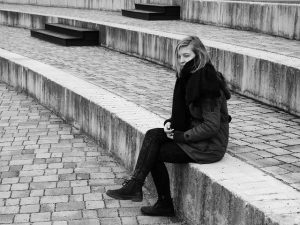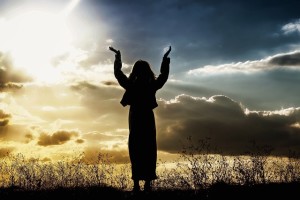We all have been wounded and hurt—the heart broken or seared by the pain of betrayal, abuse or neglect.
I too can remember a deep betrayal, a lie told me late at night, far away from home. Where does one go at that time? Where is one’s ground when the ground has been collapsed underneath by deception? What to do with the sense of vulnerability washing over one’s being? And what are the choices in the moment that align with the path of peace, of peace-building, of love and kindness, first towards oneself and then towards “you and me together”?
 I remember that fateful night clearly and with great detail. It’s not that I try to remember the details. They are simply etched in my memory. What has changed, however, is the anger, the resentment of being placed in such a vulnerable situation, feeling powerless to stop the reality that was unfolding. Even as that night turned to morning, a primary question I asked myself was: What does it mean to be a peaceful person and acknowledge my anger and deep hurt? What do I choose to do with my anger and hurt? I already knew I did not want the choice and behaviour of another to change the true nature of who I was— a kind and peace-building person.
I remember that fateful night clearly and with great detail. It’s not that I try to remember the details. They are simply etched in my memory. What has changed, however, is the anger, the resentment of being placed in such a vulnerable situation, feeling powerless to stop the reality that was unfolding. Even as that night turned to morning, a primary question I asked myself was: What does it mean to be a peaceful person and acknowledge my anger and deep hurt? What do I choose to do with my anger and hurt? I already knew I did not want the choice and behaviour of another to change the true nature of who I was— a kind and peace-building person.
My anger was real and deep. My hurt was raw and vulnerable. But to heal was to forgive. To forgive was to be in ‘love’. To remain in love was my path to peace. I knew the benefits of forgiveness. I had read them before. I knew what steps to take. I knew that forgiving the person who broke my heart in their lying would free me to create a larger narrative about who I was and the way I lived love and joy. I new forgiveness would be my gift and I knew, in the words of David Whyte, “Forgiveness is a skill, a way of preserving clarity, sanity and generosity in an individual life, a beautiful way of shaping the mind to a future we want for ourselves; an admittance that if forgiveness comes through understanding, and if understanding is just a matter of time and application then we might as well begin forgiving right at the beginning of any drama rather than put ourselves through the full cycle of festering, incapacitation, reluctant healing and eventual blessing.”
To forgive is to assume a larger identity than the person who was first hurt.
David Whyte
This experience profoundly altered my sense of my future at the time. And in working through the pain and hurt, I realized that my grief, my trauma, my anger and resentment all needed to be worked through. I learned the skill of forgiving in a new way. I learned how to hope again. And I learned how to heal the trauma in my life.
 Some believe that forgiving others is a process. Perhaps. Grieving was a ‘process’ and it’s different than forgiving. Healing from trauma was a process too and it’s different than grieving and forgiving. But when I learned the skill of forgiving, the skill of releasing the resentment of the past, forgiveness was a singular event. When we learn how to transfer our wisdom out from the anger (which reveals how deeply we care about ourselves and what we value) into our vision for a better future, we can learn that forgiving the present drama need not take long.
Some believe that forgiving others is a process. Perhaps. Grieving was a ‘process’ and it’s different than forgiving. Healing from trauma was a process too and it’s different than grieving and forgiving. But when I learned the skill of forgiving, the skill of releasing the resentment of the past, forgiveness was a singular event. When we learn how to transfer our wisdom out from the anger (which reveals how deeply we care about ourselves and what we value) into our vision for a better future, we can learn that forgiving the present drama need not take long.
I learned in my forgiving, that I can mature my sense of self and my capacity to imagine a preferred future. The narrative of who I am becomes richer and larger and more compassionate. Truly forgiving another is a profound act of compassion – both to oneself and the offender.
I am convinced that forgiving another is a skill, a skill we must practise often. I am convinced that forgiving another strengthens our capacity for creativity and imagination. And I am equally convinced that we can forgive and remember. In the words of David Whyte: “Strangely, forgiveness never arises from the part of us that was actually wounded. The wounded self may be the part of us incapable of forgetting, and perhaps, not actually meant to forget, as if, like the foundational dynamics of the physiological immune system our psychological defenses must remember and organize against any future attacks — after all, the identity of the one who must forgive is actually founded on the very fact of having been wounded.”
I remember clearly what happened those years ago. I remember clearly how I felt. But I no longer feel the hurt and the anger of that betrayal. And there is no way that the past can be different than what it was. No amount of resenting what happened will change it. No amount of demanding the past to not have happened the way it did will change the past. My best recourse was to forgive in the greatest act of compassion for myself and the one who hurt me. It is my freedom to create a just and good future for myself. And that, incredibly, is my greatest blessing.
Forgiveness does not change the past, but it does enlarge the future.
Paul Boese
If you seek to forgive, to be free to live a new and enriched future, I invite you to register for my upcoming new workshop The ART and PRACTICE of FORGIVING: Discover the Freedom to Live (November 17, 2018). Or if you think you cannot forgive, come and learn ‘how’ to forgive. Develop the skill to forgive and change your life and your relationships.
Namaste,
Shirley Lynn
